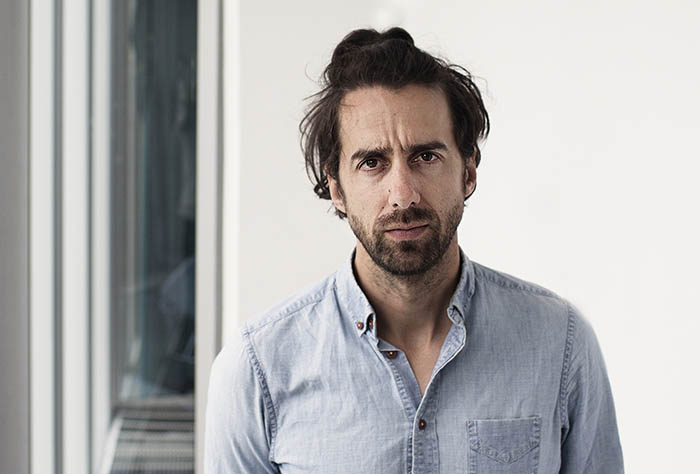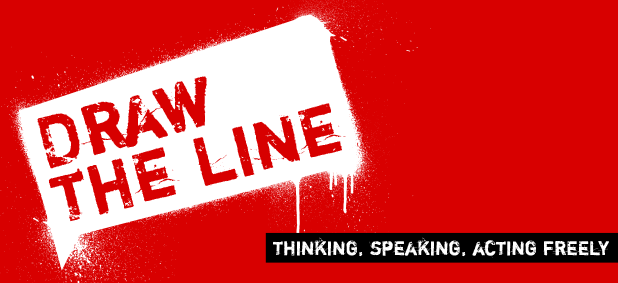10 Dec 2019 | Australia, Digital Freedom, Digital Freedom Statements, News and features, Statements, United Kingdom, United States
Index joined 52 other civil society organisations as well as private companies and security researchers in calling on governments to allow technology companies to offer strong encryption tools such as Signal or WhatsApp to the public.
The statement highlights the dangers to the security and privacy of billions of internet users around the world, should governments enforce the removal of end-to-end encryption protection on consumer messaging services, which are often used by journalists on assignments. It also points out that building “back doors” just for “good actors” is not possible.
According to the letter sent to US, British and Australian ministers: “Technology companies could not give governments back door access to encrypted communications without also weakening the security of critical infrastructure, and the devices and services upon which the national security and intelligence communities themselves rely.”
The letter goes on to describe the numerous problems critical national infrastructure, industry, businesses and private individuals would face if such ‘backdoor access’ was granted.
The appeal comes as a response to a joint letter by UK Home Secretary Priti Patel, and her US and Australian counterparts in October, and following a United States Department of Justice event describing encrypted communications tools as ‘lawless spaces’.
The full sourced statement, and list of signatories can be found here: https://newamericadotorg.s3.amazonaws.com/documents/Coalition_Response_Letter_-_Encryption_DOJ_event_and_letter_to_Facebook.pdf
25 Aug 2017 | Digital Freedom, News and features
[vc_row][vc_column][vc_column_text]

I spend a lot of my time writing about encryption. Until recently I did this from a UK perspective. That is to say, in a country where there are pretty good citizen protections. Despite the occasional hysterical article, the police don’t snoop on you without having some probable cause and a legal warrant. UK citizens aren’t constantly under surveillance and don’t get rounded up for speaking their mind.
From this vantage point, the public debate on encryption starts with its problems. Terrorists are using encrypted messaging apps. Drug dealers are using the Tor browser. End-to-end encryption used by the big tech firms is a headache for local police forces. All this is true. But any benefits are merely addendum, secondary points, “ands” or “buts”. Don’t forget, however, that encryption is also for activists and journalists, including those in less friendly parts of the world. Oh, and don’t forget ordinary citizens. Such benefits are mostly discussed abstractly, almost as an afterthought.
My view on encryption changed in 2016 when I was researching my book Radicals. This being a book about fringe political movements – often viewed with hostility by governments – I expected to use some degree of caution. But it was more than this. Over in Croatia, I was following Vit Jedlicka, the president of Liberland, a libertarian pseudo-nation on the Serb-Croat border. Jedlicka is trying to create a new nation on some unclaimed land that will run according to the principles of radical libertarianism, including voluntary taxation. The Croat authorities do not like him at all, even though he is non-violent and law abiding.
I arrived in Croatia, after an early Easy Jet flight, and was taken aside for questioning by the border police, who appeared to know I was coming. They told me not to attempt to visit Liberland. A little later, while I was away from my hotel, the police turned up and demanded a copy of my passport from the hotel manager. Jedlicka, meanwhile, was barred from entering Croatia, having been deemed a threat to national security.
I did not know a great deal about the Croatian police, but what little I did know made me doubt they cared too much about my right to privacy. I suddenly felt exposed. So Jedlicka and I communicated using an encrypted messaging app, Signal. I had considered Signal mostly a frustrating tool that helps violent Islamists avoid intelligence agencies. But suddenly this nuisance app was transformed. Thank God for Signal, I thought. Whoever invented Signal deserved a prize, I thought. Without Signal, Jedlicka couldn’t engage in activism. Without Signal, I couldn’t write about it.
This was in Croatia. Imagine what that might feel like as a democratic activist in Iran, Russia, Turkey or China.
You see the debate about encryption differently once you’ve had cause to rely on it personally for morally sound purposes. An abstract benefit to journalists or activists becomes a very tangible, almost emotional dependence. The simple existence of powerful, reliable encryption does more than just protect you from an overbearing state: it changes your mindset too. When it’s possible to communicate without your every move being traced, the citizen is emboldened. He or she is more likely to agitate, to protest and to question, rather than sullenly submit. If you believe the state is tracking you constantly, the only result is timid, self-censoring, frightened people. I felt it coming on in Croatia. Governments should be afraid of the people, not the other way around.
The debate on encryption, therefore, should change. The people who build this stuff – whether Tor, PGP or whatever else – are generally motivated by the desire to help people like Jedlicka, people like me. They don’t do it for the terrorists. Seen and understood in that light, the starting point for discussion is about the great benefits of encryption, followed by the frustrating and inevitable fact that bad guys will use the same networks, browsers and messaging apps.
Which is why any efforts to undermine encryption – through laws, endless criticism, weakening standards, bans, threats to ban, backdoors and international agreements – would hit someone like Jedlicka, or me, just as it would Isis. The questions then become: are we willing to prevent good guys having protection just because bad guys are using it? Once you’ve had cause to use it yourself, the answer is extremely clear.
[/vc_column_text][/vc_column][/vc_row][vc_row][vc_column][vc_basic_grid post_type=”post” max_items=”4″ element_width=”6″ grid_id=”vc_gid:1503654311600-41f8449d-cfd3-2″ taxonomies=”6914″][/vc_column][/vc_row]
27 Mar 2017 | About Index, Campaigns -- Featured, Counter Terrorism, Digital Freedom, Digital Freedom Statements, Statements, United Kingdom
Encrypted communication tools are used by investigative journalists and reporters under fire, as well as businesses and governments, to have safe conversations and to report on difficult and often dangerous situations.
Attempts by the UK government to create a backdoor into these services would potentially put lives at risk by making the systems far less safe. It would certainly curtail reporting from dangerous regions.
18 May 2015 | Digital Freedom, Draw the Line, mobile

Former NSA contractor Edward Snowden attempted to explain mass surveillance through a conversation around dick pics during an interview with John Oliver on Last Week Tonight, a satirical current affairs show aired by American network HBO.
“Even if you sent it to somebody within the United States, your wholly domestic communication between you and your wife can go from New York to London and back and get caught up in the database,” Snowden said in the interview, conducted in his temporary residence in Russia after the United States cancelled his passport for leaking details about NSA domestic spying in June 2013.
The elimination of complicated terminology in the discussion has allowed us to understand that although emails sent between Gmail accounts are encrypted and unidentifiable to outsiders as they move from Google’s data centres in the US and across the world, in reality the racy pictures embedded in these emails can actually be stored in several data centres worldwide as a way to provide backups in case one centre fails.
These encryption techniques have been around since 1991, when hacker Philip Zimmermann uploaded a free encryption program called Pretty Good Privacy – better known today as PGP – to the internet. Using a form of cryptography developed in the 1970s known as public-key cryptography, users are given a public key that can be shared which encrypts messages that are sent to them, and another one they keep private to decrypt messages they receive.
As public-key cryptography was generally reserved for military and government use prior to the release of PGP, the availability of these advanced encryption algorithms to the general public was a significant step in the realm of free expression at the time. But while web-based communication has become part of daily life, the average citizen is only beginning to grapple with the idea of mass surveillance let alone the tools associated with it.
Should individuals accept the surveillance environment, allowing – for example – government officials to obtain personal photographs shared between two consenting adults through a corporate service, as raised by Snowden?
Just months before Snowden blew the whistle, India began implementing a Centralised Monitoring System in April 2013 to monitor all phone and internet communications in the country. Following his disclosures on mass US secret surveillance programs, other governments around the world such as Brazil and Russia began debating on how to pressure companies to store user data locally. During this period, Turkey began drafting new regulations that would make it easier to get data from internet companies following the eruption of Gezi Park protests.
To what extent is it possible to escape everyday surveillance amidst these developments and how would this affect our communications? And even if technological advancement brings us newer tools providing stronger privacy protection, where should governments draw a line in monitoring what we share with friends and family?
Join the discussion on twitter with #IndexDrawTheLine


